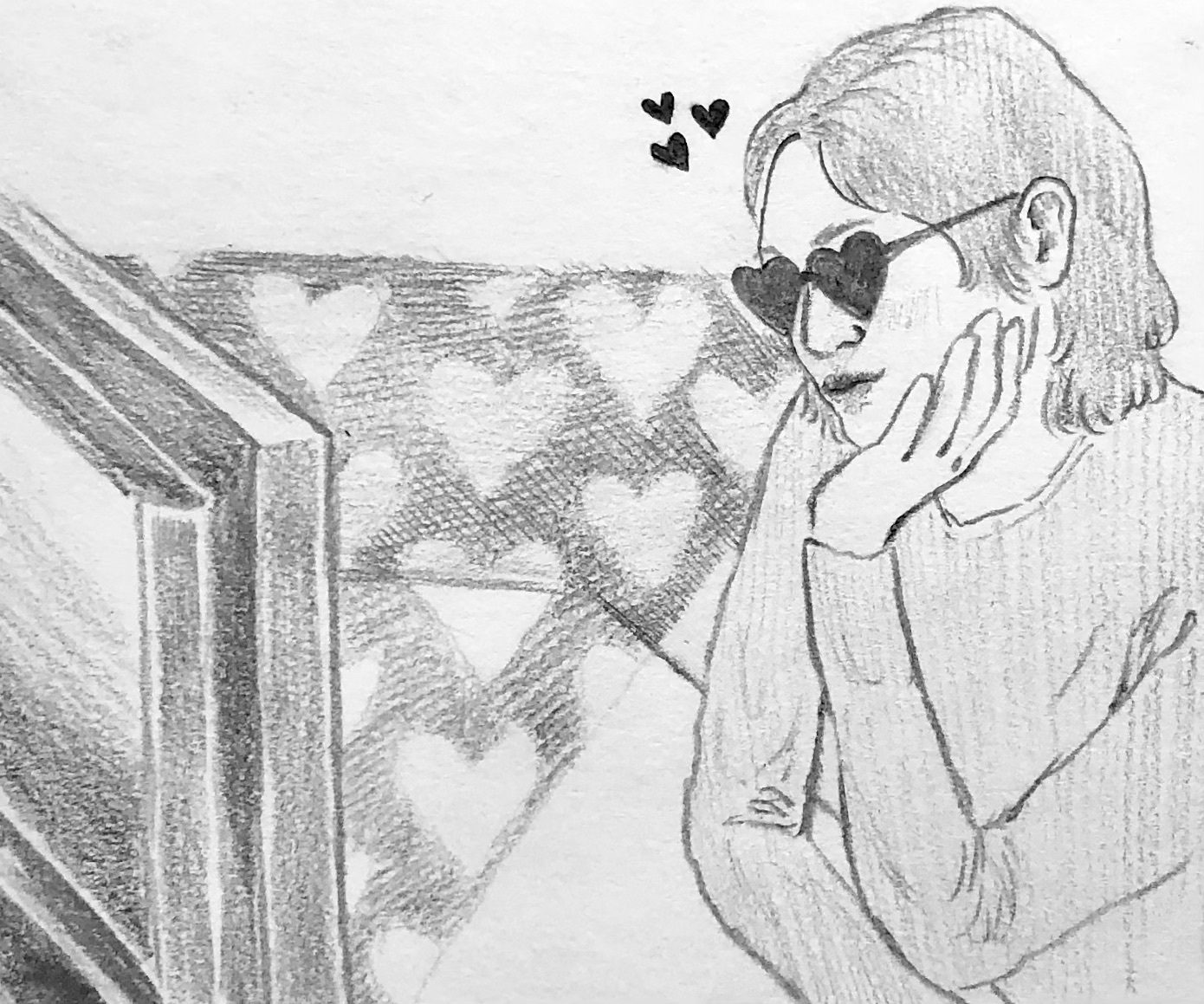Soured Valentines: How Media Misconceptions Can Leave Viewers With a Warped Sense of Romance
February 22, 2023
When it comes to romance, our first thoughts are typically chocolate valentines, walks on the beach, and cringe-worthy rom-coms. On the screen, the sun always seems to shine on picnic dates and adorable stuffed animals. However, reality can be far more different, and far more disappointing in comparison to the glittering, star-studded drama we see on television. And on occasion, the sparkle of an idealized romance can leave impressionable viewers blind to toxic traits peaking through — which might be considered normal or even romanticized in the eyes of viewers.
One of the most common (and admittedly best-selling) tropes in romance is a love triangle. After all, what’s more intriguing than the uncertainty of who’s going to end up with whom? It’s an almost certain guarantee of not only drama, but also higher viewership ratings. However, there’s an inevitable promise of happiness at the expense of another’s misery, as well as a seemingly endless road of jealousy, pining and defensiveness. While these traits might be seen as comedic or even romantic on screen, real life is a different story. As school therapist Ms. Loftus puts it, rather than desirable, these traits should be seen as they really are: problematic and unhealthy. “I see a lot of jealousy and lack of respecting a partner’s boundaries, especially on social media. Unfortunately, it tends to get romanticized, and for me, it comes off as toxic because there’s a lack of trust,” she explained.
Trust is an essential component of any relationship, and without good faith comes suspicion: a trait that can evolve into paranoia, which is irrefutably unhealthy. With paranoia also comes the desire to avert any potential crises, which can encourage repressing your partner’s interests and intruding upon their personal lives. “When you’re forbidding someone from doing something, it’s not necessarily romantic. It’s more controlling, and control and love are not the same thing,” Ms. Loftus affirmed. While the desire to look out for your significant other can be overwhelming, it is also vital to respect their boundaries. Taking time for yourself is key to any relationship, especially for teenagers, where support through others is needed, but no more than personal space.
As the drawbacks of these unhealthy traits become increasingly apparent in the twenty-first century, it’s a wonder why many seem to ignore or even normalize the toxicity of these kinds of relationships. One may question why the media markets these harmful stereotypes as ordinary in the first place. However, the answer is plain to see: the media displays it so frequently because of its high selling power. Ultimately, conflict is a major attraction, and media producers are well aware that a healthy or realistically-portrayed relationship is not. Viewers would often rather immerse themselves in an entertaining and unrealistic fiction rather than the outwardly disappointing reality of an actual romance.
However, this is not to say that all things portrayed on screen are terrible or a bad influence. There are hundreds of strong, healthy relationships exemplified on and off television screens. However, the impact it has on audiences (especially when the show caters to younger viewers) shouldn’t be underestimated; when such impressionable audiences see questionable traits on screen, they may fail to notice how problematic they are in real life because of how normalized they’ve become. Thus, they may become blinded to the various red flags or warning signs of a potentially toxic relationship. In order to avoid this, Ms. Loftus suggests conversing with your partner about your expectations from the relationship- as well as the inevitable boundaries that must be set. Though heavy conversations such as this one may be uncomfortable, Ms. Loftus asserts that they are necessary to maintain good communication with your partner. At the same time, avoiding issues in your relationship may worsen the situation rather than resolve it. “It’s natural to avoid what makes us uncomfortable, but it doesn’t make it go away. In fact, it may actually make these problems bigger,” she explained. As awkward as these conversations may be, Ms. Loftus believes that they can help couples find solutions earlier to help eliminate any obstacles in their relationship. “Once it’s out there, you would know what your situation looks like and how to cope with it rather than having drama come up later,” she added.
Scripted media isn’t the only thing that can pressure people into finding a relationship — sometimes, social media can too. Despite this, it’s principal to know the difference between feeling true emotion rather than obligation. As social media-active Zara Simon (10) describes, seeing the people around you date can severely affect your perception of how a relationship should start: “When you see your friends dating, it makes you want to do the same and you might jump into a relationship without being ready. It can make you fear a relationship after experiencing a rushed one.”
Though media-produced romances can be seen as idyllic, awareness of these problematic traits can prevent the spread of increasing blindness to the issues that they present. As Valentine’s Day approaches, we should keep in mind that though life on television may seem perfect, it’s nothing compared to the joy we can experience in the real world.

